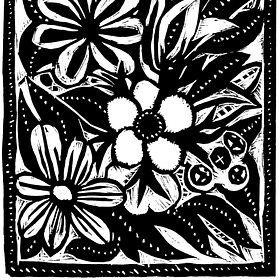Emily Dickinson - 7 Very Short Poems (1863-1885)
Forgotten Poems #53: Pride Month Specials!
“If I read a book and it makes my whole body so cold no fire can ever warm me, I know that is poetry. If I feel physically as if the top of my head were taken off, I know that is poetry. These are the only way I know it. Is there any other way.” (in a letter to T. W. Higginson, 1870)
Rest at Night The Sun from shining, Nature—and some Men— Rest at Noon—some Men— While Nature And the Sun—go on— (poem714, c. 1863)
Soft as the massacre of Suns By Evening's Sabres slain (poem1127, c. 1868)
A Letter is a joy of Earth— It is denied the Gods— (poem1639, c. 1885)
All things swept sole away This—is immensity— (poem1512, 1881)
To see the Summer Sky Is Poetry, though never in a Book it lie— True Poems flee— (poem1472, 1879)
With the leave of the bluebirds, without whose approval we do nothing. (letters, 1885)
I send a message by a mouth that cannot speak. The ecstasy to guess Were a receipted bliss If grace could talk. (letters, 1885)
“I am glad you love the blossoms so well. I hope you love birds, too. It is economical. It saves going to Heaven.” (in a letter to Eugenia Hall, 1885)
What can I say? Emily Dickinson (1830-1886) was one of the true mavericks of 1800s English-language poetry, practically inventing the ‘modern’ (i.e. mid-1800s to early-1900s) ‘serious’ short poem, and along with Walt Whitman would become a touchstone for the post-1913 explosion of ‘new’ verse.
Dickinson published just 11 poems in her lifetime, largely due to the deeply patriarchal and academic bias of Western institutional power. Dickinson’s poems weren’t just ‘unusual’ for the time, but defied the the very definition of how ‘poetry’ was understood in the West: they were extremely brief (typically reserved for ‘light’, humorous verse, like epigrams and limericks), had unusual punctuation and rhythms, and were typically grounded in a poetics of suggestion, rather than “sensible” description, explanation, and/or narration (on which English-language poetics, including the definition of poetry itself, was built).
After her death in 1886, Thomas W. Higginson, Dickinson's lifelong friend and supporter, wrote that her poems gave “the impression of a wholly new and original poetic genius,” and as such were difficult to even classify as ‘poetry’: “What place ought to be assigned in literature to what is so remarkable, yet so elusive of criticism?” While a lot of her work had been published by the early-1900s, her most experimental and radical works—particularly her unrhymed poems—would remain unpublished until the mid-1900s, and have seldom been given the attention they deserve.
Furthermore, much of the work selected for publication early on was often edited, to tone down the experimentation, and remove the queer undertones of her love poetry, such as those written for Susan Gilbert: “Wild nights! Wild nights! Were I with thee, / Wild nights should be / Our luxury!” Thankfully, due to the hard work of anthologists and academics, today we are lucky enough to have the complete poems and letters available in their original forms . . .
Tanka For Emily Dickinson by Dick Whyte letters made of little gods— when did they stop writing back? xoxo dw
Forgotten Poets Presents:
Forgotten Poems, a living anthology of obscure and out-of-print poetry from the late-1800s and early-1900s. Explore the archives:
Helen Birch Bartlett - 6 Short Poems (1917-27)
—: October in Illinois :— October— A blood-red line, Low in the western sky— Grey everywhere— Cold and clear The frozen yellow fields— Nearness and distance interchangeable— A single rabbit-hawk...
Adolf Wolf - Immortality (1913)
—: Immortality :— At dawn of day the stars die one by one. They only seem to die, but do not die. There is no death for humans, or for stars. What we call life and death is only rhythm...
More poems about the gods . . .
Alfred Kreymborg - 6 Short Poems (1915-1917)
—: Clay :— I wish there were thirteen gods in the sky. One blessing won't do. Or even one god in me. I can't shape this thing alone...

















Letters? Does anyone write these anymore? Imagine receiving an Emily poem in the post. Love your poem at the end Dick.
Thank you for the work you do, Dick!